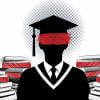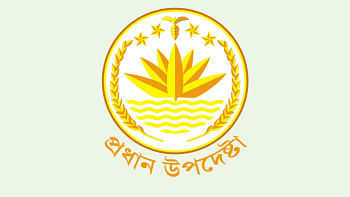What to expect from a Communications degree

It's a striking irony that in a society where communication and information reign, many people don't understand what a communication degree entails. Let me start with the basics because this degree could lead to a variety of job opportunities that are relevant to a generation like ours, who were born in the midst of expanding innovative technologies, digitisation in both mainstream and social media, and seamless connectivity.
I admit that I had some reservations when deciding to pursue a degree in Media Studies and Communication as an undergraduate, but I set myself up for a challenge. A month into my first semester, I was beginning to realise how the choice may have been a good one. Communication studies include subjects like media studies, journalism, marketing, strategic communication, communication principles, and advertising. It is a rich tapestry of knowledge that gives students the skills they need to successfully navigate the intricate web of interpersonal relationships and information exchange.
Communication studies are underappreciated because of preconceived notions and a lack of understanding of the field's depth and breadth. Communication entails more than just speaking and listening; it also entails crafting messages that resonate with a variety of audiences, understanding communicators' psychology, and staying current with new trends and technologies. The belief that anyone can effectively communicate ignores the knowledge that comes with a communications degree. Understanding the power of words and the moral obligations that come with them is more important than simply knowing what they mean.
A communications degree provides a variety of tools for individuals who can go on to explore numerous specialisations available in the field, each of which offers special abilities and knowledge. For instance, while journalism serves as a bulwark of accountability and veracity, media studies delve deeply into the intricate operations of the media. Public relations, which is also closely related to the idea of strategic communication, is the practice of managing an organisation's reputation; the main emphasis is on developing messages that seamlessly align with organisational goals. In addition, studying communication theories exposes you to the subtleties of human perception, interaction, and psychology, raising your emotional intelligence a notch.
As you advance through this multifaceted academic journey, you develop a strong foundation in strategic planning and learn how to develop communication strategies that appeal to a range of audiences. This level of proficiency imparts an in-depth knowledge of how to effectively convey a brand's message, making it particularly pertinent for those with a strong interest in business development. The ability to communicate effectively becomes priceless in the field of marketing, which is essential to any flourishing company.
Since communication is the basis of policy making, those with degrees in communication-related fields or related fields are better qualified to be effective changemakers. Given its growing global influence, Bangladesh requires skilled communicators to advance its interests. A communications specialist can help you translate complex technical jargon into simplified information to spread awareness. While plans are in place to transform Bangladesh into a "smart" nation through technological and infrastructure development by 2030, the opportunities for communication specialists are virtually limitless.
According to the concept of "smart nations," technology should be used for the benefit of society, and effective communication serves as a bridge between technological advancements and societal needs. The need to educate the public about these changes is what spurs innovative initiatives, from digital governance to urban planning. You need strong communication abilities to take advantage of the Internet of Things, digital innovations, and development communication when a nation places a high priority on that goal.
This expands its horizons to cover creative communication, a set of abilities that are becoming more and more crucial in today's world of abundant information. People who can tell compelling stories and create original content stand out in a sea of noisy data. Students who major in media communication acquire the skills and knowledge required to successfully navigate the rapidly changing environment of modern media platforms. You could be running your own business or developing the most innovative marketing plans at an advertising agency because you would have the entire media literacy toolkit at your disposal.
Overall, the degree gives you the chance to explore the fascinating fields of communication, media, and influence. It is crucial to comprehend how words, images, and symbols in language influence our perception of the world. A degree in communications can set up a person to perceive their world in an effective way.
Nahian Jamal Joyeeta is a student at ULAB.

 For all latest news, follow The Daily Star's Google News channel.
For all latest news, follow The Daily Star's Google News channel. 










Comments